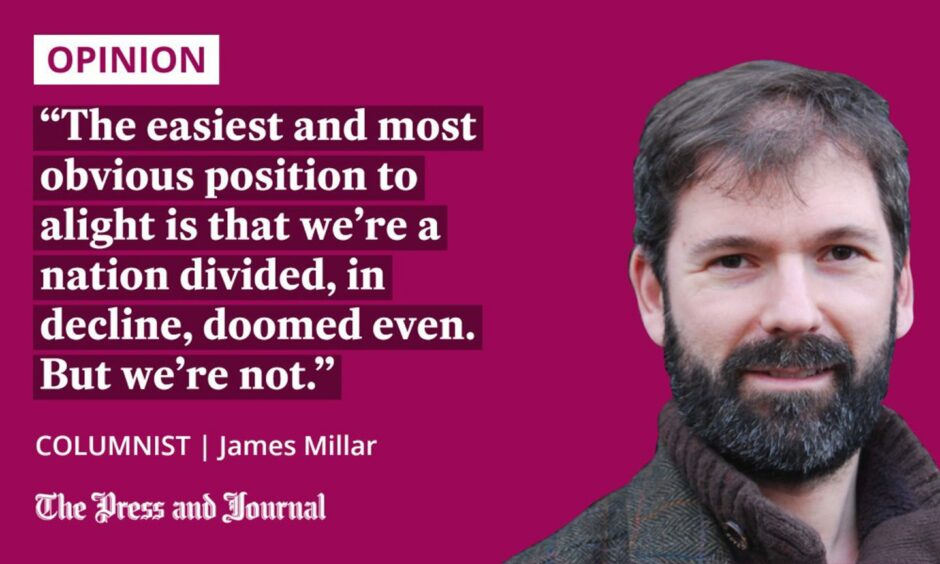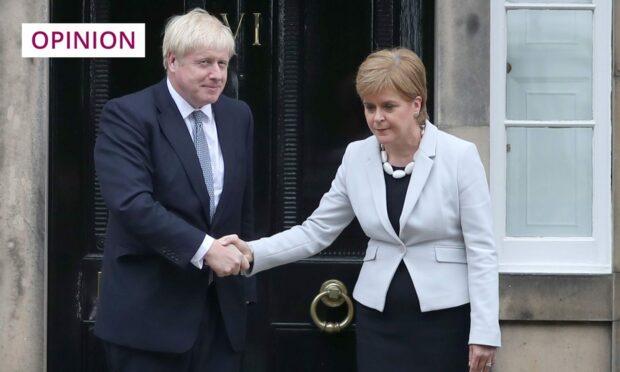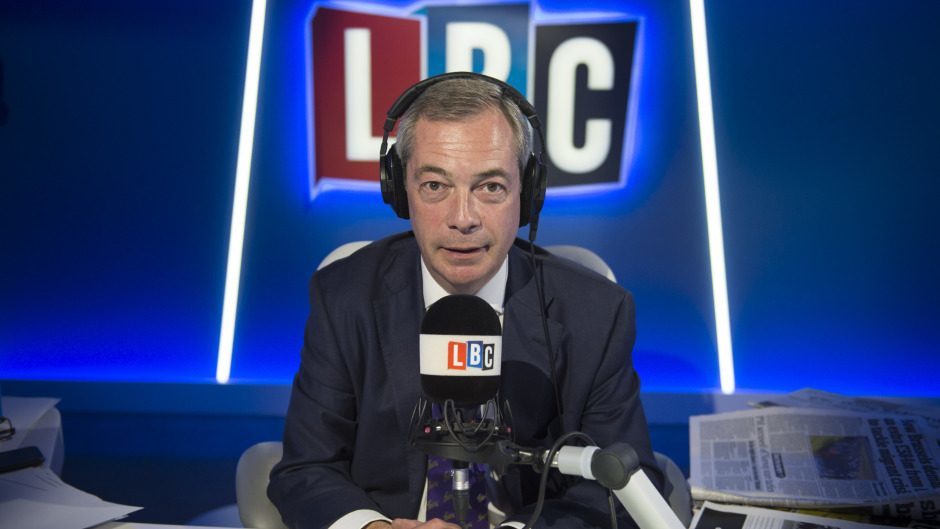A fascinating new set of figures about public attitudes, and particularly the nebulous concept of trust, provide a welcome shot of optimism among the current political maelstrom.
With a former First Minister arrested last weekend and a former Prime Minister found to have lied to MPs it would be easy to lose faith in politics.
Some element of trust in those that lead us is fundamental if the whole concept of government and the democratic process is not to fall over.
So it’s reasonable that that confidence is knocked when the involvement of their peers or the police raises questions about the integrity of those in whom we placed some faith.
And there’s an added ingredient in the social media squall that accompanies such events. Witness the glee of unionists butting up against the desperate defence from Sturgeon supporters or the complaints and conspiracies of Boris Johnson supporters online over the last week.
The easiest and most obvious position to alight is that we’re a nation divided, in decline, doomed even.
But we’re not.
The World Values Survey (WVS) is a huge research programme that quizzes thousand of people across the world on dozens of topics.

It allows us to track how opinions and attitudes change but also how the UK compares to others. Weirdly, the UK has left the EU but, perhaps in an effort to model global Britain we have rejoined the WVS for the first time in 15 years, with the Policy Institute at King’s College in London doing
And the answers are simply at odds with that air of despondency that politics engenders.
Kate Nash is better known for her slightly sweary noughties pop hits than political insight but the findings are best summed up by the title of one of her songs: We Get On.
Brits are tolerant
Brits are tolerant of each other.
When the survey started in 1981 the vast majority of UK respondents were down on homosexuality, divorce, and abortion. Now we’re down with it – majorities are not fussed about any of the above.
We’re mixing it with Sweden when it comes to topping the league of those most comfortable around people of a different race, religion or sexual orientation.
While the Westminster government is banging on about stopping the boats and preparing to fly immigrants to Rwanda (a policy and a sentence that doesn’t get any less bizarre with each repetition) only a third of us agree with the proposition that ‘the government should place strict limits on the number of foreigners who can come here’.
Of 110 countries in the global survey, we’re the least likely to say immigration increases the crime rate or that it increases unemployment and among the most likely to say it helps fill important job vacancies and that it strengthens cultural diversity.
Nigel Farage, Suella Braverman and everyone at GB News can take those stats, stick them in their collective pipe and smoke it.
But it’s the question of trust that is most fascinating, illuminating and even lucrative.
We Brits lack trust in government, parliament, political parties and the press. But support for the concept of democracy has actually risen over the same period that our faith in the mechanisms that underpin it has eroded.
And we trust each other – both those people we already know and complete strangers. While other nations have seen that measure dip, trust among Brits has remained reasonably steady since the 1950s.
Trust oils the economy
This makes for a more rooted and pleasant community but it brings other benefits. Trust oils the economy. It allows information to move more freely, makes it easier to do deals and hire people.
In a low-trust economy – Nigeria and Mexico don’t score well – you may hire a less qualified friend or relative for a role and deals take longer and require more oversight.
Increase trust by 10 per cent and you can add £200 billion to GDP. Instead of the constant hollering for tax cuts from certain Tory quarters, the Chancellor ought to be celebrating and supporting a sense of community.
And trust can be a matter of life and death. Community came to the fore during the pandemic as neighbours rallied around. It feels like that spirit has largely been put back in the box but it ought to be fostered.
By comparing nations you can show that each extra percentage point of trust in the UK adds up to around 2500 lives saved.
Covid vaccines saved lives, but so did community spirit. The current administration in Number 10 likes to bang on about the former but foolishly neglects the latter in its calculations of what matters and what wins elections.
The data from the World Values Survey offers a strong counterpoint to national gloom and hope during the current chaos.
We Brits believe in democracy and we trust each other. Those are strong foundations from which to build.
James Millar is a political commentator, author and former Westminster correspondent for The Sunday Post.


Conversation